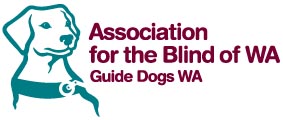Home
About us
News
Services
Guide Dogs
Vision Loss Resources
Discovery Centre
Conferences & Courses
Shop
Support Us
Contact Us
Disability in Society
Stereotypes
Freaks
Changing Attitudes
Before we look at the more positive aspects of disability and the people who must live with them we will look at some of the stereotypes associated with people and disabilities. Believe it or not such attitudes go
Stereotypes
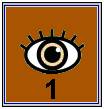
Some of the words used on the webpage are a little difficult and you may not be familiar with them. To help you get the most from the page content a glossary is linked to “eye con” 1. Check it out if you don’t understand one of the underlined words.
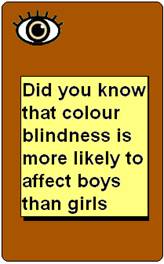 Consider Valentin Haüy who in the 1770’s established one of the earliest schools for the blind and developed a raised alphabet to teach his blind students to read using their sense of touch. Haüy was motivated to change the way the blind were treated by some blind men who seemed happy to accept the stereotype the community held of the blind in the 1700’s, participating in a play which only served to reinforce these beliefs. Below is an account of the story that changed his life and the lives of many others.
Consider Valentin Haüy who in the 1770’s established one of the earliest schools for the blind and developed a raised alphabet to teach his blind students to read using their sense of touch. Haüy was motivated to change the way the blind were treated by some blind men who seemed happy to accept the stereotype the community held of the blind in the 1700’s, participating in a play which only served to reinforce these beliefs. Below is an account of the story that changed his life and the lives of many others.
“In 1771, a young man named Valentin Haüy visited St. Ovid's fair and stopped at a cafe for lunch. What he saw there would change not only his own life, but the lives of millions of blind people, forever.
In a crowd-pleasing gimmick that appeared only that year, a group of eight blind men from the Quinze-Vingts were performing a slapstick comedy act, pretending to be what many other blind people actually were; musicians. They wore dunce caps and huge cardboard glasses. A ninth man in a red dress and donkey's ears hung from the ceiling and beat time, suspended on a perch shaped like a peacock. The "musicians" clowned for the crowd by singing and making squawking, discordant noises on old violins.
The act was a hit. An almanac published a few years later said, "One could not have an idea of the success which this joke obtained," but Haüy felt "a very different sentiment" and was so sickened by the performance that he could not finish his lunch.”
Freaks
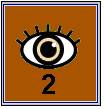 History tells us these attitudes persisted in the community and in the minds of many, are still there today.
History tells us these attitudes persisted in the community and in the minds of many, are still there today.
In Louis Braille’s day, in the early 1800’s, he too was met with opposition to the idea of teaching blind people to read and write. Dr. Guillié, who was running the school for the blind at the time of Louis Braille’s admission to the school, was an ophthalmologist who had founded the first eye clinic in Paris. Dr. Guillié referred to blind people as, among other things, "degraded beings, condemned to vegetate on the earth." Dr Guillié was not particularly interested in developing the educational needs of his blind students. He established the first sheltered workshop and put his students to work making slippers, buggy whips, fishing nets, and straw chair bottoms.
Armand Dufau, Assistant Director of the school, was also strongly opposed to the idea of the blind learning Braille as he believed that if blind people could read it would make them "too independent"
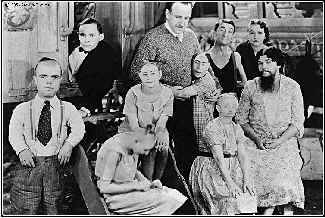 These attitudes were not only held of the blind but were equally applied to the deaf and others in the community with disabilities.
These attitudes were not only held of the blind but were equally applied to the deaf and others in the community with disabilities.
Now you might think these attitudes were appalling but the reality was that there were many examples of people with disabilities being exploited in this time period. As begging, a common use of the disabled in earlier centuries, became unaccepted the disabled were forced into freak shows, work houses, or state run institutions called asylums (The inset picture shows circus “freak show” members (Disabled People) from 1932) When you consider the treatment of the disabled in their day perhaps people like Armand Dufau and Dr. Guillié had a point.
Unfortunately, such asylums were not happy safe places. People placed in these institutions were often abused, neglected, and experimented on. Most people imprisoned in these places were treated horribly.
Believe it or not, such attitudes and conditions persisted in many places until the mid 1970’s when these abuses were exposed and the community demanded change.
Ask your teacher if your class can organize a debate on the following topic. See what attitudes persist among your classmates.
Class Debate: People with disabilities should work in sheltered workshop environments because they are easily exploited and can only manage menial tasks.
Changing Attitutes
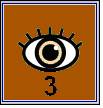 Now that you have some idea of what attitudes still persist in our community regarding the disabled perhaps you might like to proceed to the next of our worksheets on this topic and take a fresh look at the issue as it presents itself in the 21st century.
Now that you have some idea of what attitudes still persist in our community regarding the disabled perhaps you might like to proceed to the next of our worksheets on this topic and take a fresh look at the issue as it presents itself in the 21st century.
In seeking to introduce the topic of disability in society we have recorded a couple of interviews with people living with disabilities to help you gain some insight into the challenges they face in every day life and the concerns they have in interacting with other people and living with the limitations associated with their disability.
Many people’s disabilities are minor and they are able to live their lives without anyone ever knowing they have a disability. There may be children in your class who have such “hidden” disabilities. Unfortunately, not all people with disabilities are able to function in this way and there disabilities are very obvious to those around them and severely limit their opportunities. They also attract a degree of prejudice from others around them who, through ignorance, choose to single them out for teasing and isolation.
The following statement is a reflection of what many in the community think of those who have a disability.
Having a disability of any kind can make relationships with others difficult and limits a persons “life Potential”

